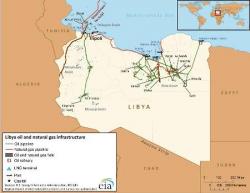U.S. Unable To Halt ISIS March Towards Libyan Oil

Submitted by Joao Peixe via OilPrice.com,
The Islamic State (ISIS) is taking on recruits faster than anyone can keep up with, and it’s heading towards Libya’s oil crescent, eyeing billions of barrels that a country at war with itself cannot protect - even with U.S. air strikes.